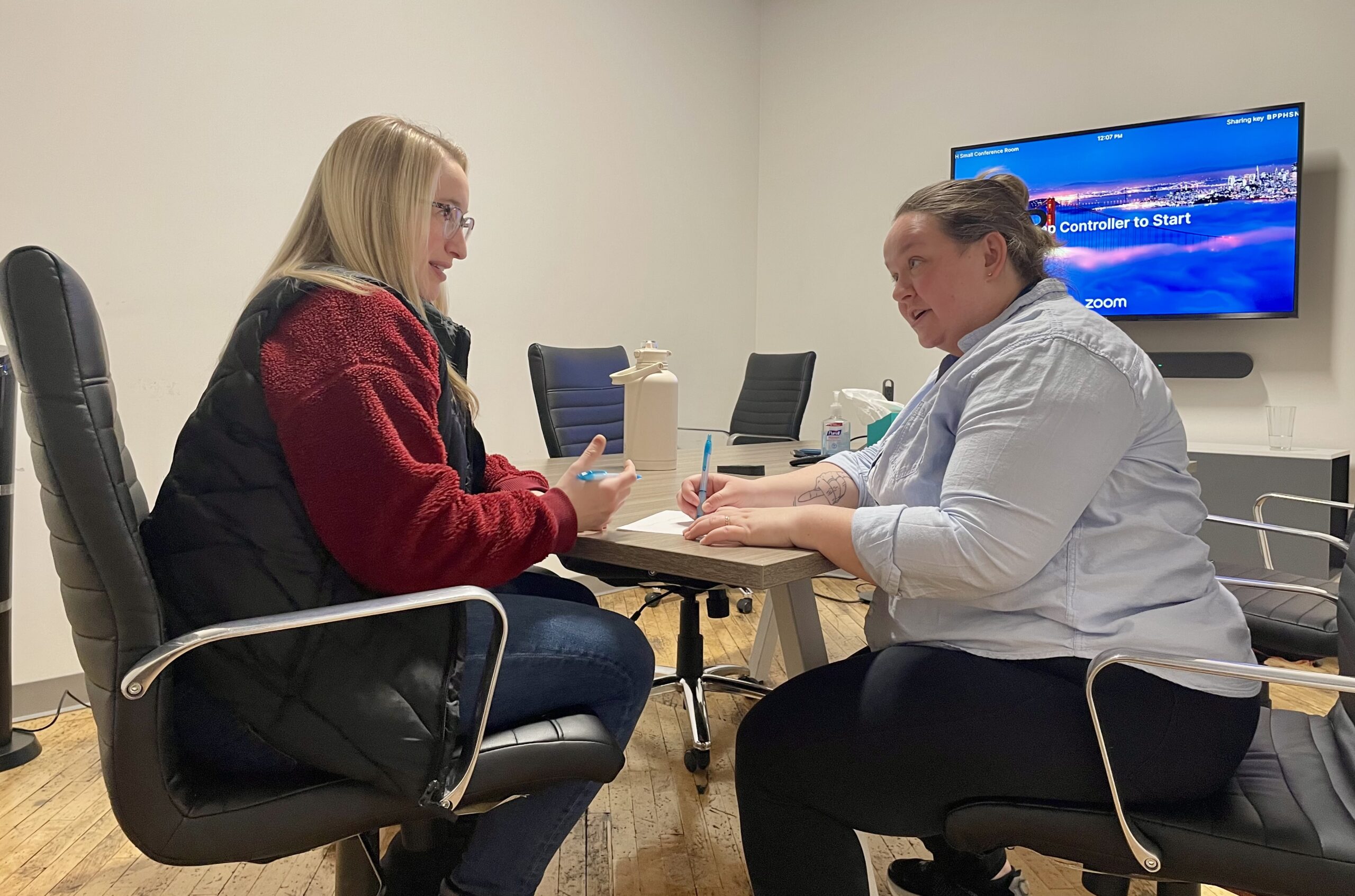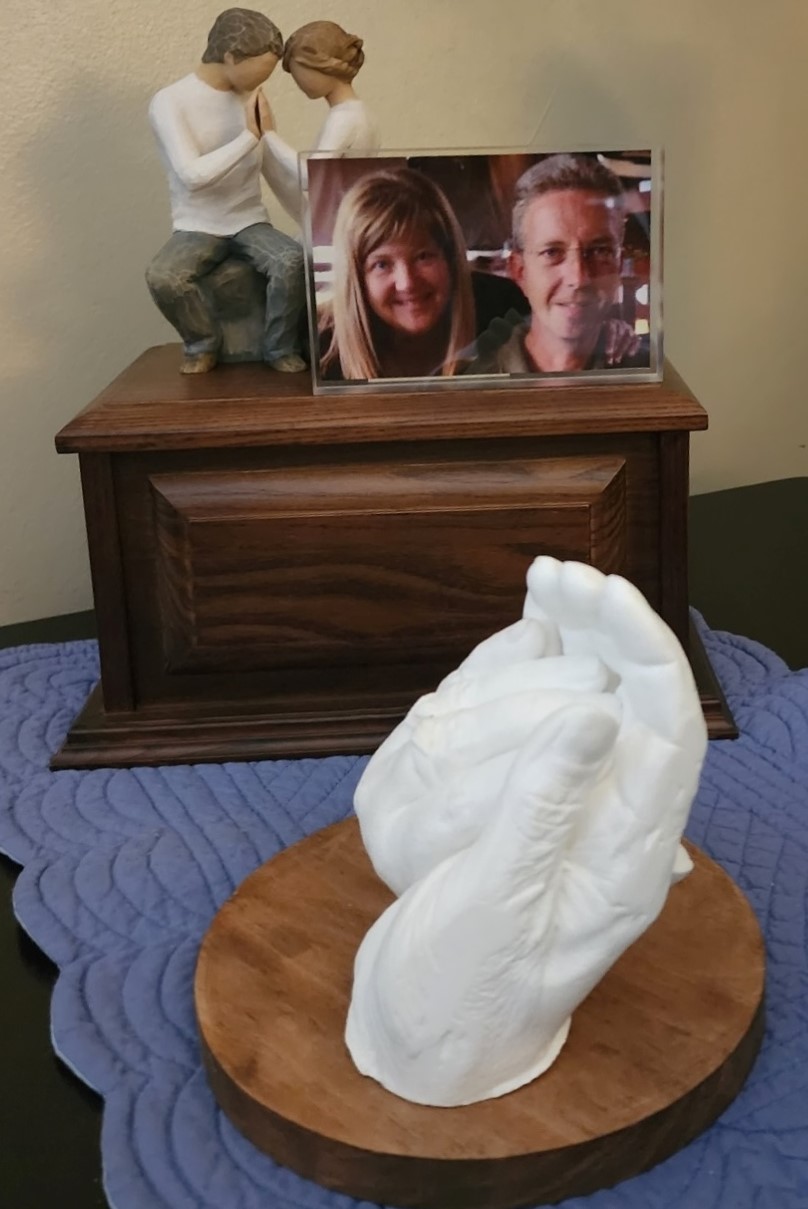Tenacious. That’s how Kristin Leese Linkfield describes her father, John Leese, who passed away at 92 years old from complications of Parkinson’s disease in April 2024. Diagnosed at age 74, his courageous fight lasted 18 years.
“When he was diagnosed, that tenacity that was engrained in him came out immediately,” Linkfield remembers. “He wanted to do everything he could to fight it, keep on top of it, even though he knew it was likely a losing battle unless a cure was found in his lifetime.”
Linkfield remembers her father as “a wonderful man who did a lot of wonderful things for people, never looking for praise, but because it was the right thing to do.”
She says he was always seeking perfection and excellence in everything he did. He was adamant he didn’t want to burden his loved ones in any way and, as an accomplished engineer, there was nothing he couldn’t fabricate, build, create or design to solve a problem.
“He was trying to organize and work things out for my mom even in his last days,” Linkfield remembers. “In his eyes, everything had to be perfect so when he left, he wasn’t leaving her with any problems to handle. During his last week alive, we assured him he’d done all he could. We told him, ‘We’ll take care of mom. You taught us well. You can go.’”
As Father’s Day nears, the second without her dad, Linkfield feels at peace knowing he passed into the presence of his Lord and Savior. She also has a sense of relief that his struggle with Parkinson’s is over.
For 10 months, he was under the care of Emmanuel Hospice, a service Linkfield describes as having brought a lot of joy and comfort. At the time, Linkfield felt entirely overwhelmed by her father’s medical needs, but said the Emmanuel care team “swept in like angels,” knowing just what to do. In reflecting on her father’s end-of-life experience, there’s nothing she would change.
“There is grief and mourning, but I also know it was time to leave his earthly body,” Linkfield says. “He lived a good long life and went out on his own terms. But I don’t know how we would have gotten through those 10 months without Emmanuel Hospice. I want people to know that hospice is there to help you make things as good they can be in the circumstances you’re in.”
An especially bright spot in the journey was Emmanuel Hospice aide, Taylor Fowkes, who Linkfield describes as a spitfire. Leese and Fowkes quickly developed a special bond.
“Some would describe my dad as having a prickly exterior with a soft soul on the inside,” Linkfield says. “Not everyone got to see his soft side unless they knew how to dig for it. He often acted tough, but when Taylor walked in, she had him evenly matched. It was like she was handpicked for my dad. God had a plan in that.”
In addition to his connection with Fowkes, Leese especially benefited from massage therapy and spiritual caregivers, as well as specialized nursing care, medication management and equipment for his changing symptoms. From Linkfield’s perspective, there was nothing Emmanuel Hospice couldn’t solve.
On her father’s last day, his apartment was full. Linkfield was touched that the whole Emmanuel care team and several family members were there.
Particularly meaningful was the blessing of thanks, a ceremony that blessed his journey home and expressed gratitude for each part of his physical being – “eyes that have looked on us with love,” “ears that have been attuned to our needs,” “hands that have been a source of welcome and help,” “a heart that has given and received love” and so on – with an anointment of lavender oil.
“The blessing of the body ceremony is sacred to me,” Linkfield says. “I still hold close to my heart how beautiful that was. I will never forget it.”
If you or someone you love is on grief journey and would like support, please contact our Grief Support Team at EHbereavement@EmmanuelHospice.org or call 616.719.0919. Our services are open to anyone in the community. We offer individual counseling as well as support groups, classes and workshops. More information is available at EmmanuelHospice.org/grief-support.




